The COVID-19 pandemic continues to exact a huge toll on not just the physical health but the mental health of the nation. As we enter a new, very uncertain academic school year – it’s important for parents, caregivers, and school personnel to know the signs that a young person is struggling with his or her mental health.
Loneliness and isolation can negatively impact a child’s mental health
We know that stress and anxiety can be common during the school year for students, but with the pandemic upon us, it’s even more important to pay attention. For those who are physically going back to schools, the anxiety and fear are palpable – and simply navigating the uncertainly can feel overwhelming. And for those who are learning virtually, too much isolation can be harmful.
Research shows that chronic loneliness, which many of us are feeling these days with stay-at-home orders – can translate to poor sleep, high blood pressure, greater risk of suicidal ideation, and even alcohol and drug use. Depression and anxiety have also increased in the months since the pandemic began.
Half of all mental health disorders begin by the age of 14, and about 75 percent begin by the age of 24. But it’s also important to know that mental health issues are common and treatable – you don’t have to suffer in silence!
Take a mental health screening B4Stage4
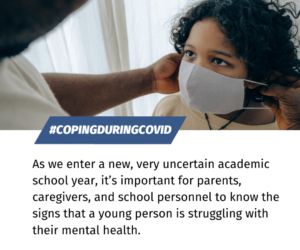
Just like physical health, taking care of mental health struggles early can help to prevent more serious problems from developing in the future. If you are concerned that you or someone you know may be experiencing a mental health problem, it is important to act before Stage 4. Start the conversation. Seek help from a trusted adult. Remember there is nothing to be ashamed of and that there is help and hope available.
Mental health crisis services and other support resources are available
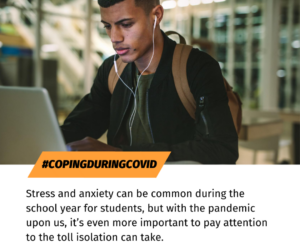
We’re also providing free professional mental health support through our COVID Cares service by calling toll-free 833-HERE4MN. We are here to help anyone who is feeling elevated levels of stress, anxiety or depression during these unprecedented times.
In addition, to continually support people during the pandemic, we’ve temporarily extended our hours of our Warmline service from 12 p.m. to 10 p.m., Monday – Saturday. Our normal hours were 5 p.m. – 10 p.m. Our Warmline is staffed by certified peer specialists who know what living with a mental health condition is like.
Back to School 2020 Toolkit
Parents, students, and families
Teachers
- Dealing with Potential Exposure-The Stress of Physically Reopening Schools-Tips for Success
- Teachers-Protecting Your Mental Health-Ways to Help Other Teachers
- Teachers-Protecting Your Mental Health-Ways to Help Yourself
- For Teachers-The Stress of Reopening Schools
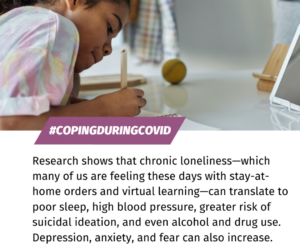
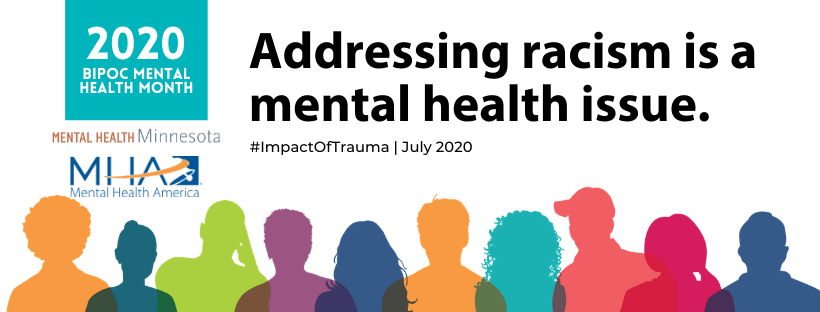

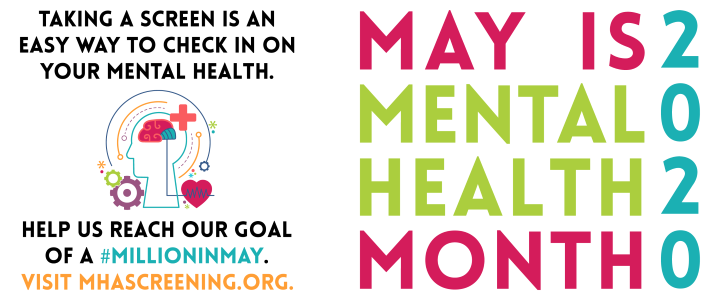 May is Mental Health Month, and it has never been more important than this year. While 1 in 5 people will experience a mental illness during their lifetime, everyone faces challenges in life that can impact their mental health. health. Just weeks ago, we had no idea that all our worlds were going to be turned upside down by the coronavirus (COVID-19) or that the associated worry, isolation, loneliness, and anxiety would be something that literally everyone – all five in five – would experience.
May is Mental Health Month, and it has never been more important than this year. While 1 in 5 people will experience a mental illness during their lifetime, everyone faces challenges in life that can impact their mental health. health. Just weeks ago, we had no idea that all our worlds were going to be turned upside down by the coronavirus (COVID-19) or that the associated worry, isolation, loneliness, and anxiety would be something that literally everyone – all five in five – would experience.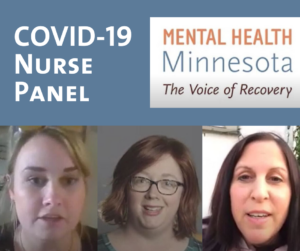 COVID-19 on Monday, April 27, 2020. Our outreach coordinator, Samantha Hedden, facilitated the conversation. The nurses discussed their mental health, how the pandemic has affected their jobs and lives, and how the community can best help during this time.
COVID-19 on Monday, April 27, 2020. Our outreach coordinator, Samantha Hedden, facilitated the conversation. The nurses discussed their mental health, how the pandemic has affected their jobs and lives, and how the community can best help during this time.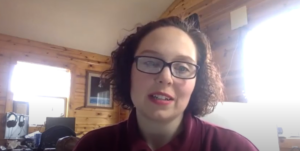 Samantha Hedden, our Outreach Coordinator, participated in a web workshop on wellness, hosted by the Minnesota Music Coalition on April 10, 2020. She discussed Mental Health Minnesota tools and resources, including our Warmline, Helpline, CONNECT initiative, and mental health screenings to help artists and all Minnesotans find healthy ways to stay well, cope, and remain positive and motivated during this unprecedented and challenging time.
Samantha Hedden, our Outreach Coordinator, participated in a web workshop on wellness, hosted by the Minnesota Music Coalition on April 10, 2020. She discussed Mental Health Minnesota tools and resources, including our Warmline, Helpline, CONNECT initiative, and mental health screenings to help artists and all Minnesotans find healthy ways to stay well, cope, and remain positive and motivated during this unprecedented and challenging time.